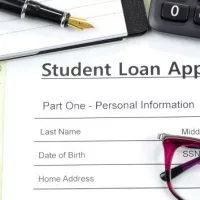
(NEW YORK) — President Donald Trump’s administration is set to begin collecting defaulted student loan payments next week — which could harm the credit scores of millions of borrowers.
Roughly 5 million borrowers will have their university and college loans sent for collections beginning May 5, the Department of Education said last month.
When that happens, the borrowers’ credit scores could be impacted, since ratings agencies are often alerted when collections ensue, experts told ABC News.
Here’s what to know about the collections and what it could mean for borrowers’ credit scores:
Why are the credit scores of some student loan borrowers at risk?
Student loan borrowers are considered delinquent if they fail to make a loan payment for 90 days. When late payment stretches on for a total of 270 days, then the borrower falls into default. When a federal student loan enters default, the government can send it for collections, garnishing wages or even taking money from Social Security payments or tax refunds.
The risk to borrowers’ credit scores dates back to policy decisions made when former President Joe Biden’s administration resumed federal student loan payments after a period of relief that had been enacted during the COVID-19 pandemic.
When the Biden administration lifted the pause in the fall of 2023, the White House set in motion a 12-month moratorium. The administration did not count late payments toward delinquency. That moratorium ended in October — meaning borrowers could be considered delinquent if they didn’t make payments for more than 90 days, returning to the way the process worked pre-pandemic.
More than 9 million student loan borrowers will face “significant drops” in their credit score when delinquencies resume over the first half of 2025, the New York Federal Reserve found in March.
“These credit score effects show up with delinquencies – that’s when the credit score takes the hit,” Judith Scott-Clayton, a professor of economics and education at Teachers College, Columbia University, told ABC News.
Similarly, the Biden administration in 2023 initiated a one-year moratorium during which it would not report loan defaults to credit bureaus. That pause expired on Jan. 1.
Now, the Trump administration is set to begin collections on defaulted loans, causing further potential damage to credit scores, some experts told ABC News.
“The longer you remain delinquent, that will compound,” Kate Wood, a writer and spokesperson at NerdWallet, told ABC News.
How much do late college loan payments hurt a borrower’s credit score?
Late payments on a college loan can significantly hurt a borrower’s credit score, studies show.
The New York Federal Reserve found student loan delinquency causes a borrower with a credit score of 760 points or higher to lose 171 points on average, according to a study of loan data between 2016 and 2019.
Subprime borrowers with credit scores at or below 620 lose on average 87 points in the event of a student loan delinquency, the study said.
“The consequences are worse for those starting out with good credit scores,” Scott-Clayton said.
VantageScore, a credit-scoring system, said in February that late college loan payments can result in a credit score loss of up to 129 points. Student loan borrowers who make payments on time could see credit score increases of up to 8 points, VantageScore said.
What does a damaged credit score mean for borrowers’ finances?
Borrowers with lowered credit scores will face greater difficulty making big-ticket purchases like homes, cars or even refrigerators for which they may need to take out a loan, experts told ABC News.
When consumers with reduced credit scores seek a loan, they face higher interest rates as banks determine that the borrower risks an inability to repay.
“We’re talking about a chunk of the population who won’t be able to buy a car because they won’t be able to get access to a car loan or it will be prohibitively expensive,” Kirabo Jackson, a professor of education and social policy at Northwestern University, told ABC News.
A lower credit score can even jeopardize an individual’s job prospects, since some employers check an applicant’s credit, Jackson said.
Some states restrict an employer’s ability to check an applicant’s credit, including California.
The damage to borrower’s credit scores may cause a hiccup in the overall economy, since some individuals may forgo big purchases, Jackson said.
“It’s not a huge effect for the economy but it certainly won’t be helpful,” Jackson said. “And when you talk about the impact for the individuals, it will be quite considerable.”
Copyright © 2025, ABC Audio. All rights reserved.












